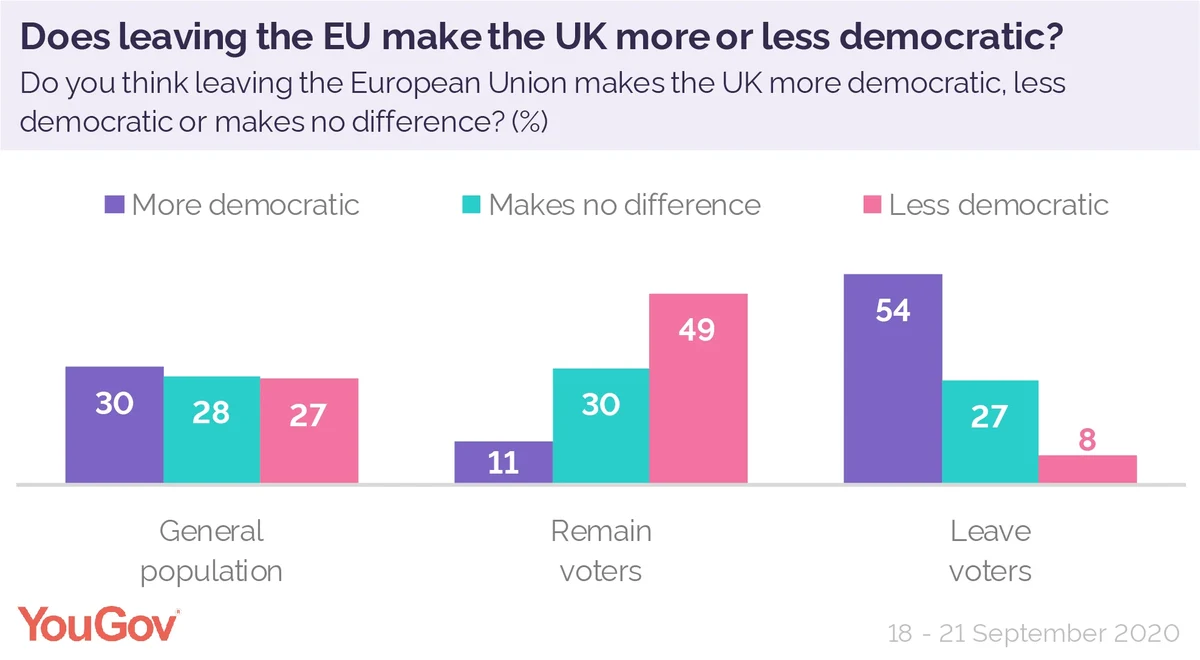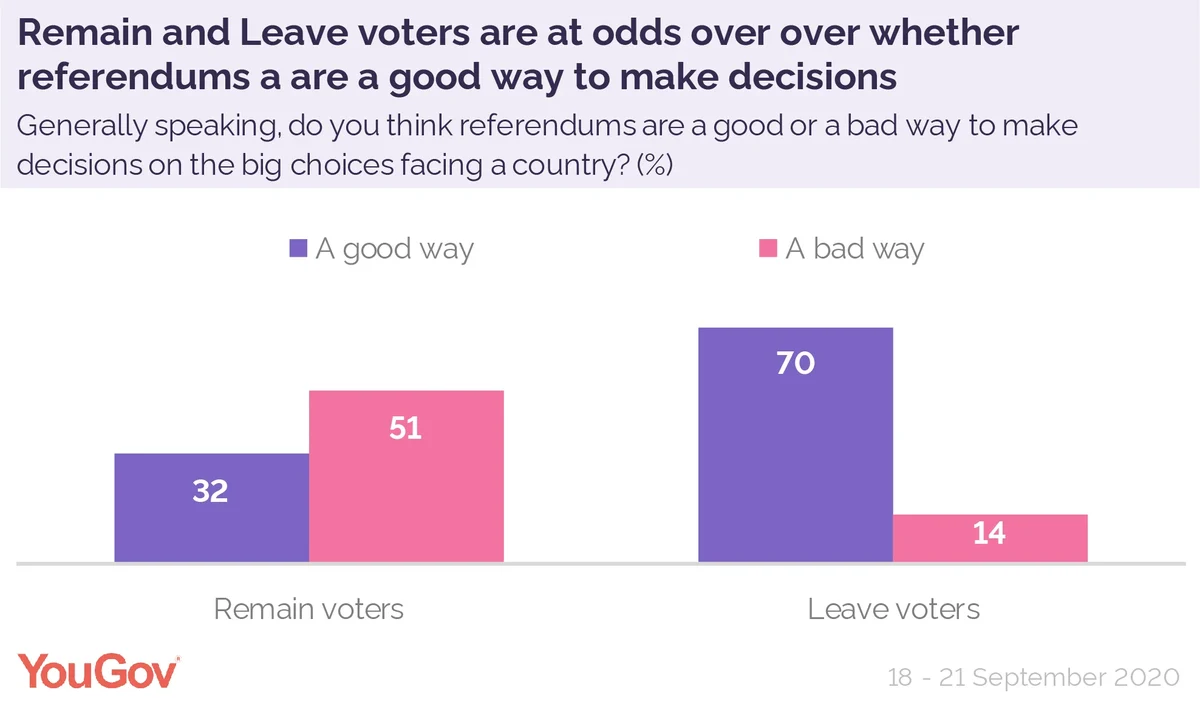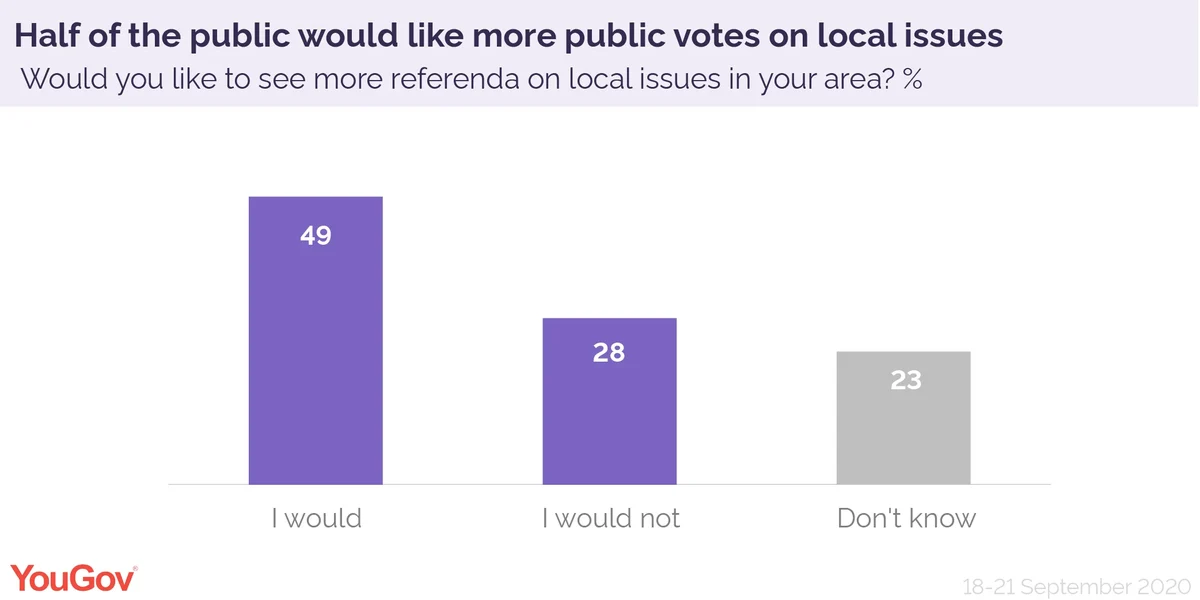In the previous decade the UK has twice let its future be decided by a referendum: in 2014 with the Scottish independence referendum, and in 2016 with the referendum on EU membership. But what does the British public think about the concept?
The notion of a democratic deficit within the European Union was a driving argument pushing the Leave vote in the 2016 Brexit referendum. Depending on perspective, the result can be described as a make or break moment for democracy in both the UK and globally.
The new YouGov Democracy Study has found that the public is widely split on how the 2016 vote affected our democracy. While three in ten (30%) say the referendum made the UK more democratic, just slightly fewer (27%) say it has made it less so.
When viewed from the perspective of voting patterns, one in nine (11%) Remainers said that the 2016 referendum made the country more democratic, but half (49%) say it harmed UK democracy.
One in 12 (8%) Leavers said the referendum made the UK less democratic, with the majority (54%) thinking the opposite.

The 2016 EU referendum provides a point to debate and analyse the validity of referenda in making important decisions. Are they worth it?
Our data shows that half the British public (49%) think referenda are a good way of making important decisions for a country, while three in ten (30%) think they are not. One in five (21%) are undecided.
We can report that among Remainers a third (32%) approve of referenda, while half (51%) don’t.

Splitting the data by age shows that support for more direct democracy is highest among the 60-and-older group (58%) and lowest (but still high) among the youngest generation (43%).
Our study also shows that half of the population (49%) would like to see more referenda on local issues.

A third of those aged 40 and older (33%), however, are not in favour of local referenda. In London, four in ten (40%) are in favour of more referenda on local issues.
See full results here





